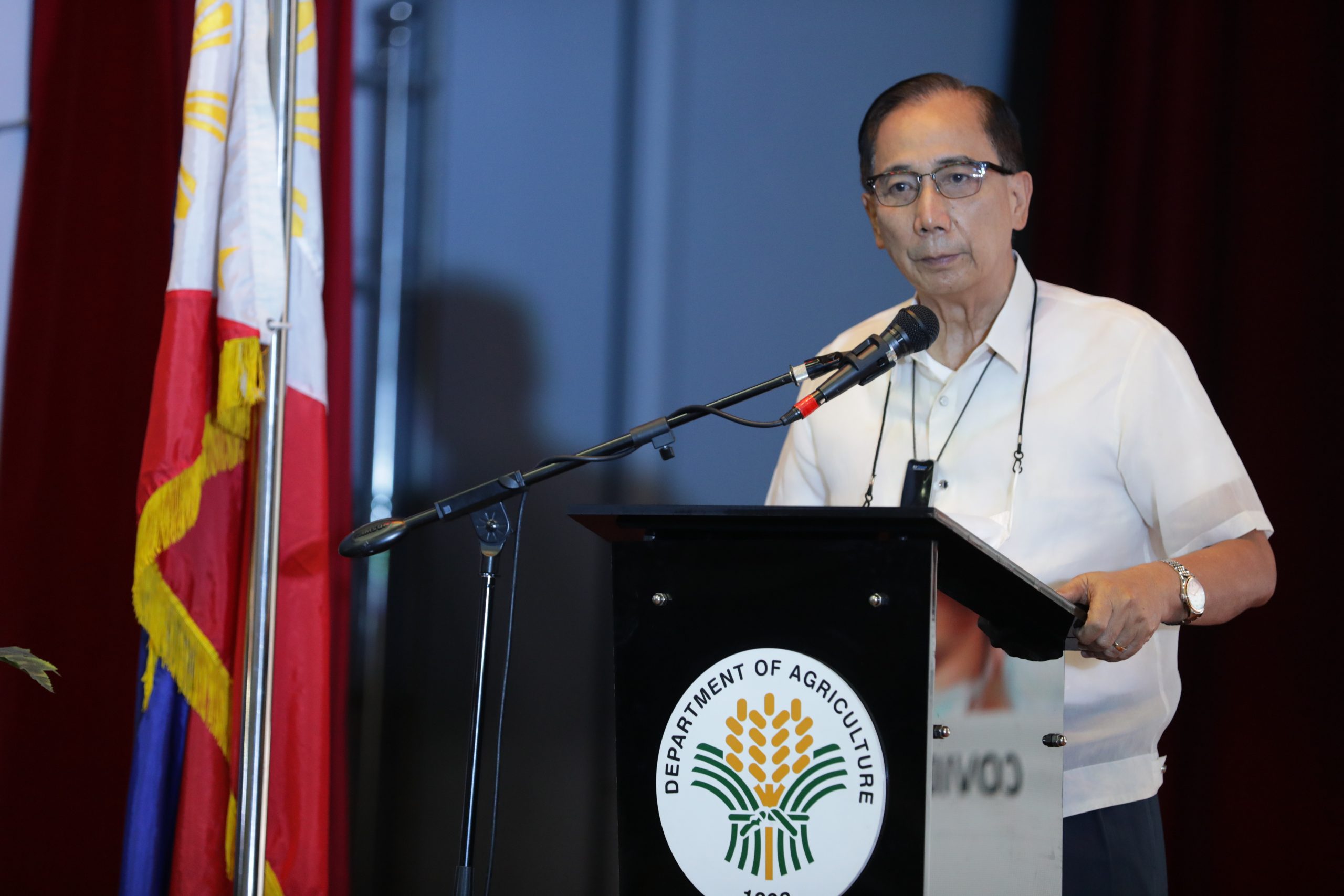
Agriculture Secretary William Dar calls for a sustained and stronger “public-private-people” partnership to lead the transformation of Philippine agriculture and respond to the pandemic and other challenges, following the successful conduct of the 2021 National Food Security Summit (NFSS), from May 18 to 19, 2021.
In his closing message, Secretary Dar reiterated the counsel of former National Economic and Development Authority (NEDA) director-general and socio-economic planning secretary Cielito Habito during the NFSS plenary sessions that “agriculture is too important to be left alone to the Department of Agriculture (DA).”
“Pagtutuunan po namin ng pansin at palalakasin pa ang public-private-people partnership. Participation and engagement, and the whole process of consultation must be done well, as we have shown in this 2021 NFSS, where thousands of participants joined. We have to really engage as many stakeholders as possible, every step of the way, and that there is real meaningful engagement with them,” Secretary Dar added.
The two-day summit brought together dozens of key agri-fishery industry players, resource persons, economists, and national and local leaders, and more than 6,000 participants at the online workshops, in a blended physical and virtual platform.
Secretary Dar instructed concerned DA officials to earmark at least P55 million for the completion in four months of 11 commodity industry roadmaps, which will be coordinated by the agency’s Philippine Council for Agriculture and Fisheries (PCAF), co-chair of the NFSS steering committee. The PCAF, in partnership with the Bureau of Agricultural Research (BAR) and other concerned DA regional offices and agencies, conducted the regional summits and workshops.
“Armed with the updated commodity industry roadmaps, we can encourage and convince the private sector, including interested foreign companies, to invest in the country’s agri-fisheries sector,” Secretary Dar noted.
On the “Mandanas ruling” and devolution issues, Secretary Dar said the local government units (LGUs) will have to take on an active and stronger role, with continued support and technical assistance from the DA and other partner-agencies.
Next year with the implementation of the “Mandanas ruling,” Secretary Dar said “the LGUs will have more resources to enable them to implement their respective Province-led Agriculture and Fishery Extension Systems (PAFES), and thus they will be doing most of the rowing.”
“Devolution has been there for some time, but there is much work to be done in terms of the LGUs being more efficient and effective, particularly in giving priority and allotting more budget for their agri-fishery, and agribusiness projects and programs,” the DA chief said.
For her part, assistant secretary for regulations and DA-PCAF director Liza Battad said that institutional measures to adopt the agri-fishery scope of the “Mandanas ruling” have already been relayed to the Department of Interior and Local Government (DILG).
“We have identified important strategies that we hope would be translated into needed policies by the DILG, particularly in providing LGU extension with relevant, modern farm technologies and capacitating them, including livestock and fishery technicians, and more importantly farmers and fisherfolk, rural women, and youth,” said Battad.
Finally, Secretary Dar said “the perfect storm of 2020 has demonstrated the agriculture sector’s resilience, and reducing poverty remains an enormous multi-sectoral challenge. There is hunger because most people, due to the pandemic, loss of jobs and livelihood, cannot simply buy food, despite food is available.”
“If this phenomenon is not understood and appreciated by detractors, they will always blame the Department of Agriculture. We beg to disagree, as hunger and poverty is the problem that we have been addressing, even before the Duterte administration,” Secretary Dar said.
“We should highlight these things to make the public understand that we, under the ‘whole-of-nation’ approach, commit to reduce the incidence of poverty and hunger through the Duterte administration’s ‘Plant, Plant, Plant’ program and ‘Pilipinas Kontra Gutom’ in tandem with the private sector,” he concluded. ### (Frances Mae Ramos, DA StratComms)














